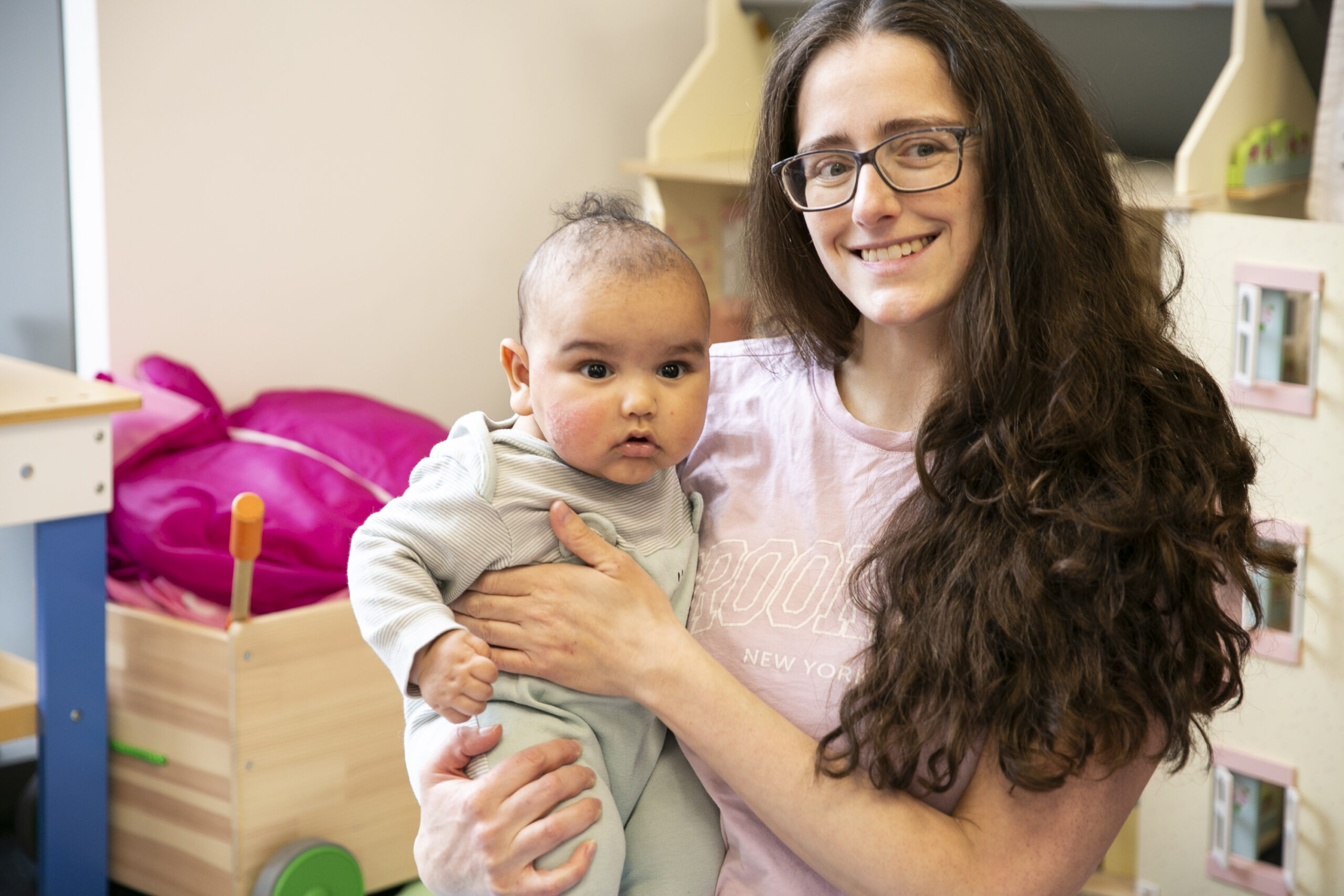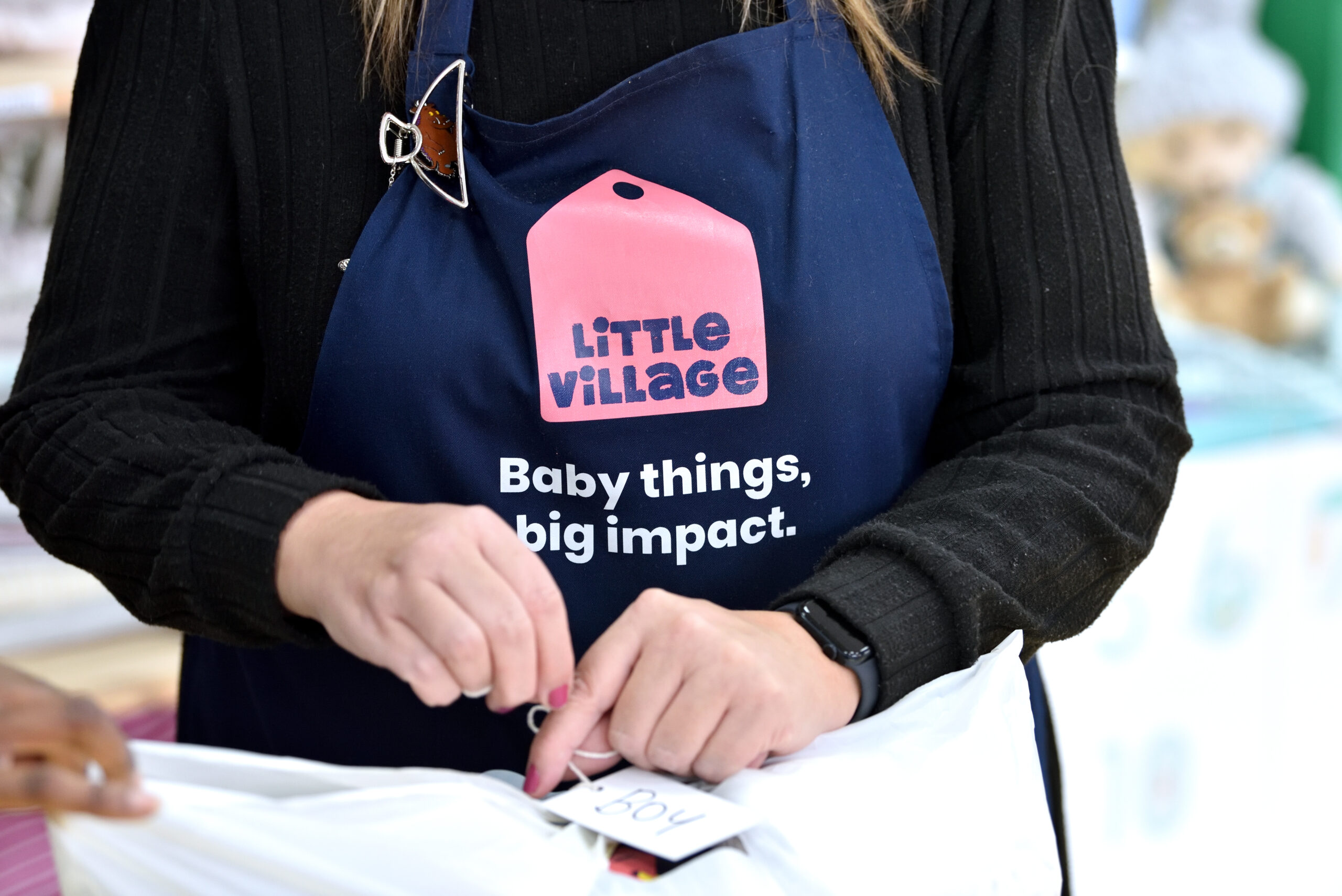Got stuff to donate? Click here:
Donate stuffNeed
help?
How the two-child limit is pushing families into poverty - Thea’s story

For the last couple of years, Thea has turned to Little Village during some of the toughest moments of her life, and we’ve been there to make sure her children had the essentials every baby deserves — from nappies and clothing to a safe place to sleep. Her story reflects the reality faced by so many parents navigating the impact of the two-child limit: doing everything they can for their children while living in constant financial strain. With quiet determination, Thea has built a life of love and stability for her family, even when the system has worked against her — and we’re proud to have stood alongside her on that journey.
Note – the below article originally appeared in The Big Issue on 17 November 2025.
I’m a working mum earning a decent salary – but the two-child limit on benefits hits my family too
Thea Jaffe is a full-time working mum hit by the two-child limit on benefits. Ahead of the autumn budget, she calls for an end to the policy to help hundreds of thousands of children
I’ve exposed myself to a lot of hate over the past two years by openly sharing that despite being in the top 25% of earners, my family is impacted by the two-child limit on benefits: the universal credit policy that denies the child element to children born third or later in their family’s birth order. That is a loss of around £292 every month.
This is because the policy disproportionately impacts single parents like me and other families relying on one income.
Earlier this year, I started Petition 725167 asking the government to scrap the policy. I have faced a wave of vitriol online, with one Reddit user speculating how many fathers my children have.
“Yes, you ARE supposed to plan your family around government policy,” they wrote.
My co-campaigners warn me not to read them, but comments like this remind me why I started the petition.
The two-child limit teaches us to judge family situations that don’t align with our own views. But every time we make this about individual choices, we let the government off the hook for its choices – even though they shape our lives.
The policy was introduced in 2017 and intended to force families on universal credit to “make the same choices as working families not on benefits”. But CPAG data shows that since then, families’ economic agency has drastically shrunk.
In 2017, a working couple could cover 97% of their children’s costs – this has dropped to 84% in 2025. For lone parents it’s gone from 86% down to 69%.
Rachel Reeves hinted at scrapping the policy earlier this week – a welcome move. But by focusing on parental death or illness as reasons families unexpectedly struggle, she implies the problem is only earnings. In reality, inflation and rising costs have wiped out the equivalent of a full-time income in many family budgets.
The two-child limit’s impact is more than financial: it divides society by turning a family’s unique circumstances into sources of shame and judgment. It demands families plan children around recessions, pandemics and policy failures, on top of personal misfortune. It blames vulnerable families for the very economic problems that make them vulnerable – systemic gaslighting at its worst.
A “choice” means possibilities but in 2025, to truly “afford” a child is impossible. And if even working families are struggling to afford children, it’s not because we’re having “too many”. It’s because the economy is broken. The system needs to be fixed, but this policy is instead trying to “fix” us.
Government research bears out the artificiality of this “choice” as it shows the two-child limit did not prevent births. All it’s done is punish children for being born. It says to parents: “Struggling to support your children? Try working harder while we push you deeper into poverty.”
Around 1.7 million children live in poverty because of the two-child limit, and every day another 109 are affected.
This not only represents hardship and inequity for children, but it’s economically disastrous. Every child forced into poverty costs us more in future NHS care, lost earnings, and lower productivity than the £292 “saved” each month.
One certainty: if we invest the money needed to scrap the two-child limit, it won’t be tied up in savings. This will be a cash infusion into local economies because children desperately need that money for essentials. For us, it would go toward welly boots, summer childcare solutions, and filling that “fiscal black hole” in my credit card.
Despite claiming universal credit on top of my salary, I’ve gone from corporate conferences to food banks, walked places to avoid bus fares, worked late to make up for time lost on the phone with Citizens Advice. In-work poverty means you have money problems but no time to solve them.
That £292 a month would help, but that’s not why I’m speaking out. I’m speaking because families across the UK are at a breaking point.
Nearly one in three UK children is growing up in poverty – about 4.5 million – but 70% are already in working families. Work doesn’t pay, and the government knows it.
How do I know they know? Because I earn £45K, and they still award me over £3,000 a month in universal credit: the equivalent of a second full-time salary. Horrified? Me too. But the horror isn’t a family claiming support.
The horror is that a top 25% earner needs to claim universal credit. And the question is, what about those earning less?
The horror is that the overall cost of a child has tripled since 2017. The horror is skyrocketing childcare fees. In 2016 my eldest’s nursery was £52 a day. In 2022, when I enrolled my middle child, it was £78 per day. Today, the same place is £100 per day.
Everything has increased 20% to 30% in three years: food, energy, bills. While wages have fallen in real terms. This doesn’t just impact larger families. It impacts everyone.
My situation is a warning of where we’re all headed: the relative income required to “afford” children soars higher and higher, while the birth rate plummets, making the two-child limit even harder to justify.
It’s not about me: it’s a systemic crisis. All our futures are interconnected. We cannot allow a third of our children to grow up in poverty and then expect their taxes to pay for our state pensions as if everything was fine.
Sign petition 725167 now and tell the government to act on child poverty in this budget. Not for my kids, but for all our kids. Child poverty is everyone’s problem.
Thea


